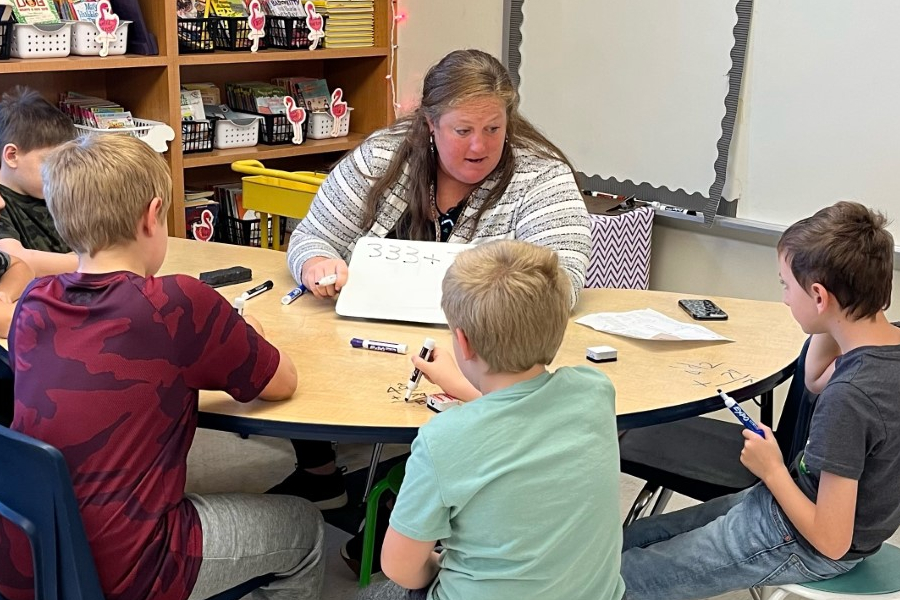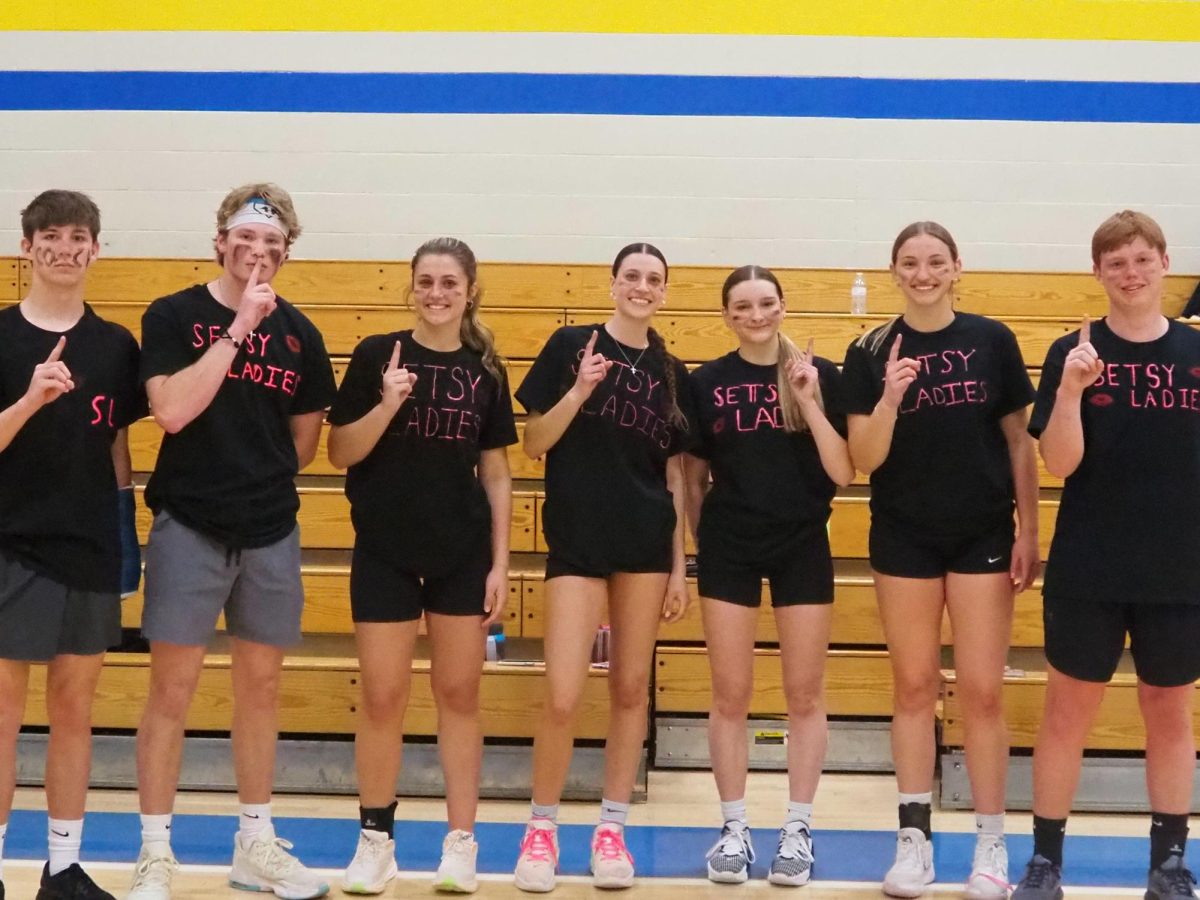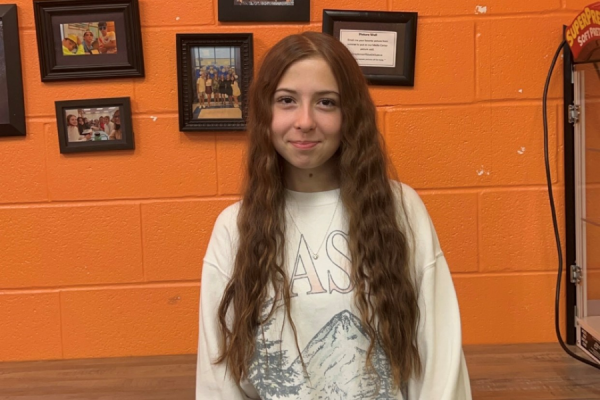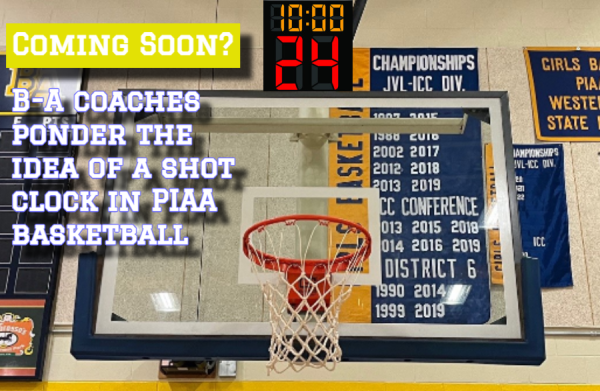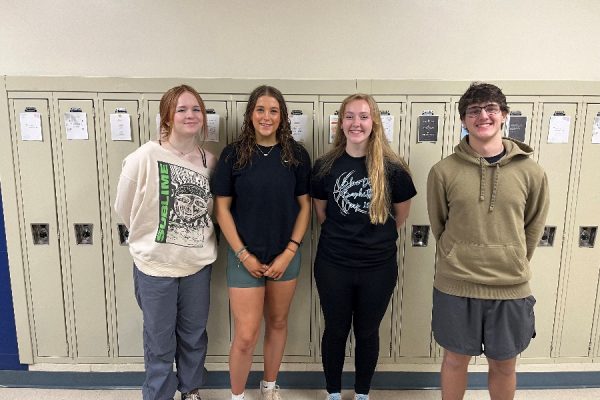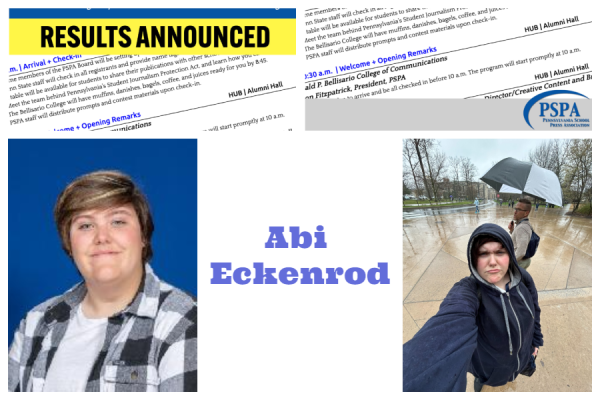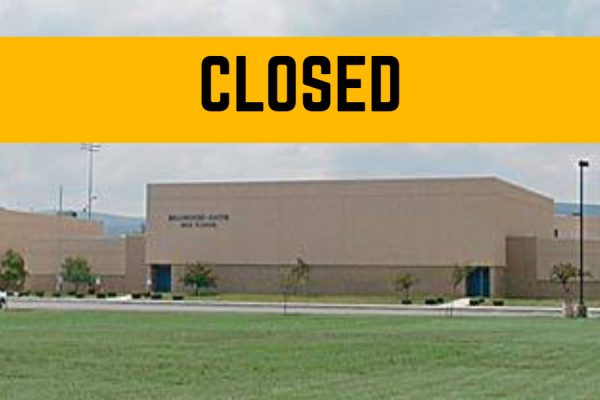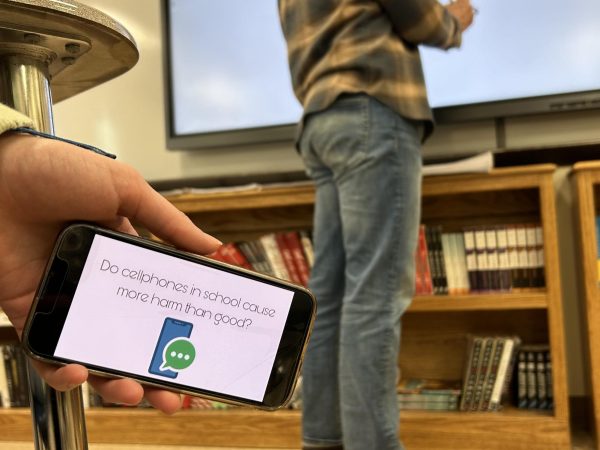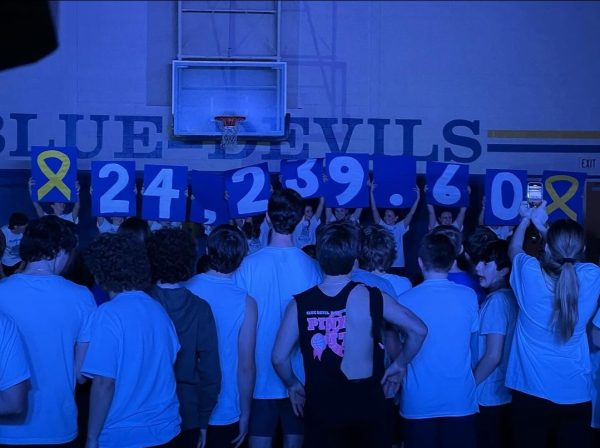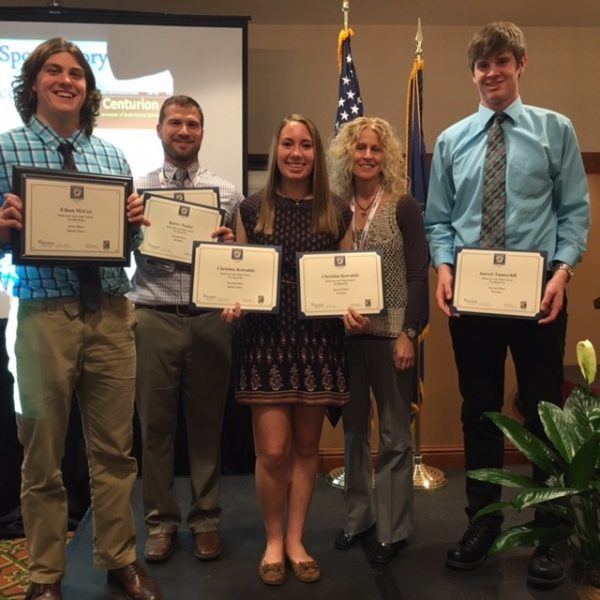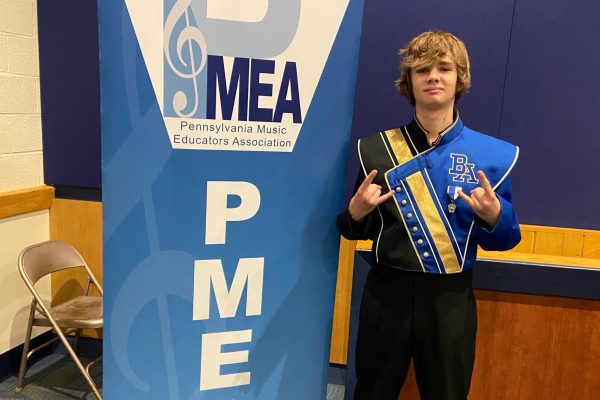COVID’s lingering effects on Bellwood-Antis
Test scores fall with the rest of the nation, but improvements are in place
Mrs. Clabaugh teaching her 3rd graders how to do addition.
November 19, 2022
There’s no doubt that COVID put a pause on traditional face-to-face education, but now that students are back on the track of a normal education, what kind of impact did missing two years of school have on them?
Schools will be grappling with that question for years, but research has suggested that students have not fully recovered from the two years of pandemic learning. The 2022 National Assessment of Educational Progress found that only 67% of 3rd graders are reading at their own grade level. Current 3rd graders missed huge portions of kindergarten and 1st grade, which are some of the most important basic building block years of school.
These same students are also performing at an even lower grade level in math, with only 54% performing at their grade level.
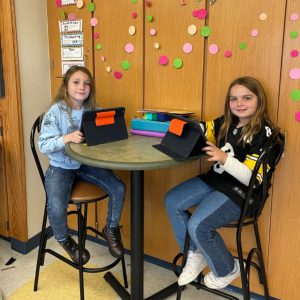
In Bellwood, Myers Elementary School and the high school have not been immune to the side effects of COVID education, though they have fared much better than the national average.
During the pandemic, learning was seized and put at almost a complete halt. Students received no face-to-face instruction for the entire fourth quarter of the 2020 school year. Once students were able to come back to school in person in the fall, teachers were forced to change their entire curriculum with kids being sent home for weeks at a time because of exposure while adapting to the virtual education, with hybrid learning and school closings during the school year.
The frequent shifts in learning and instruction methods continue to be felt.
Based on data recorded by the Pennsylvania Department of Education, Bellwood test scores did, in fact, decline on the PSSA from 2019 to 2021. On the reading portion of the test, 3rd graders test scores declined in 2021 by 21% compared to the pre-COVID year 2019. Math scores decreased as well, with a 19% reduction in 2021 compared to 2019.
However, B-A fared well on these tests when compared to the rest of the nation. On average, U.S. students experienced a 28% decline in reading grades within the whole country and a 22% decline within the math scores.
Myers Elementary principal Mr. Matt Stinson said that B-A test scores and curriculum were certainly impacted by the pandemic. Due to missing key components of instruction, Mr. Stinson said that it was expected that scores would decrease.
“At the onset, I was extremely concerned about how we would recover; however, since there isn’t anything we can do to change those circumstances, we are continually looking for solutions to the problems that arise,” he explained.
Mr. Stinson has chosen to take a head-on approach. Over the last year, teachers at Myers were trained in a new curriculum that is geared towards increasing number sense in math and improving reading comprehension.
On top of new curriculums, the district is focusing more time on math and reading interventions that help students make progress in both of those areas. The new curriculum seems to be having a positive effect on students in the school.
“With the change in the curriculum, we found that students rebounded extremely well,” said Mr. Stinson.
“It is my hope and goal that we will continue to see growth in our students – academically, physically, emotionally and socially.”
Mr. Richard Schreier, high school principal, says that the high school is still bouncing back from virtual and pandemic learning. We will bounce back and continue to grow! — Mr. Schreier
BEYOND TEST SCORES
There were multiple challenges that Myers was faced with during the pandemic, not just the educational gaps, which they are working hard to close. The emotional and social effects of the pandemic serve as large of a challenge to overcome as the academic portion of it. Mrs. Dani Hoffer, a kindergarten teacher, noted that students have had a substantial language delay over the recent years. She said that the biggest thing she noticed was that kids have a poorer vocabulary and are not communicating as efficiently as they were before.
“Students also seem like they don’t know how to be at school. Essentially they don’t know how to do basic things like sitting on the carpet, raising their hands; basically classroom etiquette,” said Mrs. Coho.
“It’s affected adults, so I can only imagine how it has affected students,” said Mrs. Angela Coleman, a second grade teacher.
Mrs. Naylor, another second grade teacher, believes that the most impactful way COVID affected kids was all their time spent without learning.
“A lot of kids missed weeks and weeks of learning because they were quarantined or sick, and filling in those gaps when they come back and trying to catch them up is definitely a challenge,” she said. “In primary ages, learning on a device is not the best way to learn. Interacting with peers, teachers, and having conversations about learning is really important, and that was all lost within the pandemic. You can’t just give them an assignment and expect them to learn it on their own. You have to talk to them and teach them”
Mrs. Naylor says her second graders this year, who did not miss any schooling because of the pandemic, are noticeably different from her second graders last year, who had gaps in their learning that needed to be filled in.
“I do think that we are really trying to come back from it,” Mrs. Naylor said.
The Myers team works hard everyday to ensure that students are moving in the right direction and are meeting their social, academic, and emotional needs.
Teachers have been working tirelessly to ensure that every student is up to speed and has an appropriate plan in place, and it seems to be working. Mrs. Lori Dinios, a second grade teacher, for example, said she does not see a big difference this year in her students that have been through the new curriculum.
When Mrs. Kyley McGarvey, the Imagination Zone teacher and one of the district’s technology instructors, was asked about declining numbers, she said ultimately test scores provide just a glimpse into individual students.
“We shouldn’t be judging these kids based off of any test scores. You just can’t look at test scores and tell me I don’t have a bright group of kids,” Mrs. McGarvey said.
HIGH SCHOOL DROPS BUT FARES BETTER
Based on data recorded by the Pennsylvania Department of Education, high school Keystone test scores were affected negatively from 2019 to 2021. The below basic category scores increased in 2021, with all three categories – Literature, Algebra, and Biology – having 11% of students placed in it. Tat compares to 6.5% in Algebra and Literature, and 8.6% in Biology in 2019. There were also fewer students placed in the advanced category in 2021, with the exception of Biology, which had an over 22% increase in 2021 from 12% in 2019.
Mr. Kerry Naylor, the English Department Chair, says the drop in advanced scores may come from the pause on reading for over a year-and-a-half.
“Many of our kids went almost a year with no reading or shared reading experience because we were online and there was no real consequence if someone just didn’t want to do the reading,” he says. “It was hard to stay sharp in that environment.”
Overall though, a majority of students have surpassed their projected test scores in the past two years, which is thanks to the teachers helping students exceed expectations, says Mr. Schreier.
“Students are more than just a number, and so are the teachers. I want my students to graduate being well-rounded and prepared citizens, not just students who have scored advanced on all their Keystones,” says Mr. Schreier.
Bellwood-Antis high school may still be fighting back from the pandemic, but Mr. Schreier said, “We will bounce back and continue to grow!”
Mr. Schreier said in his building drastic changes were not needed to recover from lost learning because there was not as steep a decline in students’ standardized test scores. High school teachers were advised to evaluate new resources for their students and to ensure the curriculum is the content that students need and that they are hitting as many key points as possible.
Mr. Naylor also believes that the high school teachers had it much easier than the elementary school teachers.
“The elementary teachers were left with instructing students in fundamental how-to-read lessons online or in some kind of hybrid situation. Our kids came knowing how to read with as much as a year of high school refinement.”
Although students in Bellwood’s test scores may have decreased over the past two years, they are on track and appear to be heading in the right directions again, and Mr. Stinson said students would not be ready for their next levels of education if it were not for the dedication of Myers teachers.
“It is my hope and goal that we will continue to see growth in our students – academically, physically, emotionally and socially,”
— Mr. Stinson



